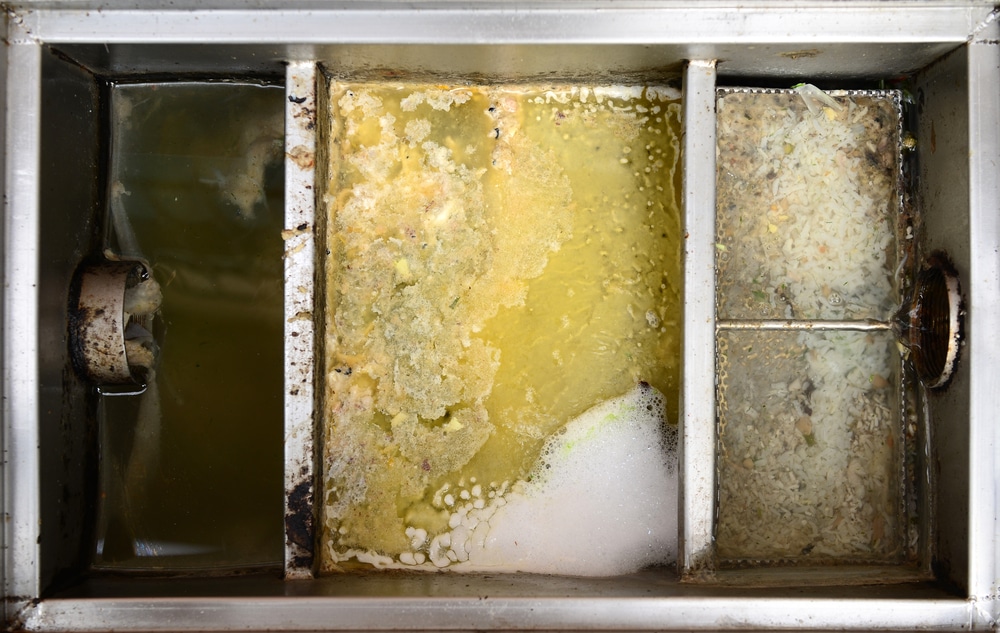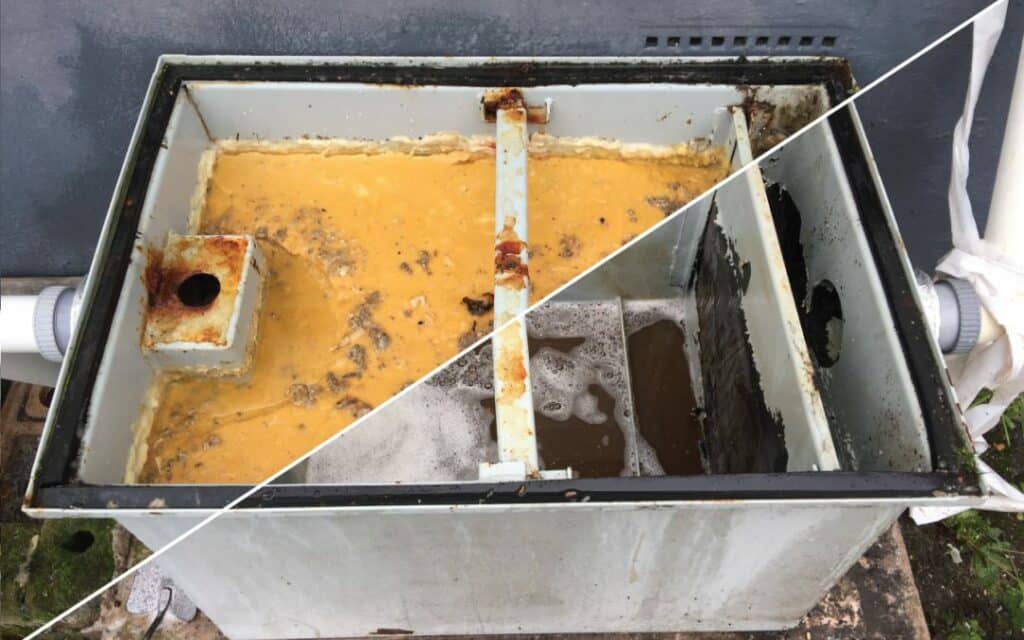Menu
Menu
Menu
Home grease trap cleaning is an important aspect of maintaining the proper functioning of a kitchen’s plumbing system and preventing environmental damage. This article will provide an overview of the importance of regular home grease trap cleaning, common signs that a home grease trap needs to be cleaned, how often a home grease trap should be cleaned, and whether a homeowner can clean their home grease trap or should hire a professional.
Home grease traps, also known as in-home grease interceptors or residential grease traps, are devices installed in a home’s plumbing to intercept and separate grease and oil from the waste water before it enters the sewer or septic system. They are typically smaller than commercial grease traps and are designed to handle the grease and oil generated by the typical household.
Cleaning a grease trap in a home is important for several reasons:
Cost-effective: Regular grease trap cleaning can be cost-effective in the long run as it can prevent costly repairs or replacements and avoid fines or penalties for not maintaining the trap.

A grease trap can fail for a variety of reasons. Some common causes of failure include overuse, lack of maintenance, improper usage, age, improper installation, improper temperature control, or even the usage of certain chemicals. Overuse can cause the trap to become overwhelmed and fail, lack of maintenance can lead to blockages and reduced effectiveness, improper use can cause the grease to solidify and clog the trap, age can cause the trap to become less effective and need to be replaced, improper installation can make the trap not work as intended. Improper temperature control can cause the trap to fail by not allowing the grease trap to function effectively. Using certain chemicals can damage the trap and cause it to fail.
Temperature can affect the performance of a grease trap in a few ways. Cold temperatures can cause the grease and oil in the trap to solidify, making it harder for the trap to capture and retain the grease. This can lead to clogs and backups in the system. On the other hand, high temperatures can cause the grease to break down and become liquid, increasing the grease flowing through the trap and potentially overwhelming the system. High temperatures can also cause the bacteria that break down the grease in the trap to become less active, reducing the trap’s effectiveness.
There are several steps you can take to maintain a grease trap and avoid costly repairs:
Yes, it is necessary to clean a grease trap regularly. A grease trap is designed to capture fats, oils, and grease (FOG) discharged from kitchen equipment, such as frying pans and dishwashers, before entering the public sewage system. If not correctly maintained, grease traps can become clogged, leading to unpleasant odors, backups in the drainage system, and other problems.

This can be done by storing the grease in a leak-proof container, such as a sealed plastic container, and transporting it to a disposal facility equipped to handle grease waste, where it can be treated and disposed of properly. Additionally, some companies offer recycling services for grease, converting it into biodiesel. It is important to comply with local regulations regarding grease waste disposal, as rules may vary depending on the location.
Proper maintenance and usage are key factors in extending the life of a grease trap. To extend the life of your grease trap, it is important to make sure that the trap is appropriately sized for your facility, schedule regular cleaning and inspections, and Use the trap properly by disposing of only fats, oils, and grease (FOG) in it and avoid disposing of non-degradable items, monitor the trap for any signs of malfunction, Properly controlling the temperature, preventing the use of harmful chemicals in the cleaning process, properly dispose of the waste by local regulations.
The basic concept of cleaning a grease trap is the same for residential and commercial grease traps. The process for cleaning a commercial grease trap is typically more complex due to the larger size and volume of grease and additional regulations and permitting requirements.
A general guideline is that home grease traps should be cleaned at least every 3 to 6 months, but this can vary depending on usage. It may be necessary to clean the trap in households where the kitchen sees a lot of use, such as in a large family or a home with frequent gatherings or parties. In households where the kitchen sees less use, the trap may be able to go longer between cleanings.
If your house does not do regular grease trap cleaning, it will lead to a rotten smell in the kitchen and dining area and could eventually lead to more severe issues like a clog or an overflow.
A homeowner can clean their home grease trap, but it is typically recommended that it be done. Cleaning a grease trap requires specialized equipment and knowledge. Professional plumbers and grease trap cleaning services have the necessary equipment, such as pumps and other tools, and the experience to clean the trap properly and ensure it functions correctly afterward. They also know local regulations to be followed when disposing of the waste.
Home grease trap cleaning is essential to maintaining the proper functioning of a kitchen’s plumbing system and preventing environmental damage. If you notice any issues, it is best to have them addressed by a professional plumber or grease trap cleaning service. These companies will have the necessary equipment and expertise to handle the job and ensure that the grease trap is functioning effectively.
If you need home grease trap cleaning services, don’t hesitate to contact us at +17023470738. Vegas Drain Masters will be happy to assist you in maintaining your grease trap and ensuring the proper functioning of your kitchen’s plumbing system.

Site By: Strictly Plumbers